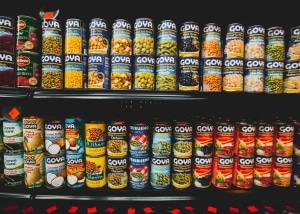
Mislabeling food could be the result of various causes. Sometimes, it’s intentional and deliberate, other times, it’s accidental or simply the result of ignorance. Whatever the reason, it can be detrimental to your business and could lead to a recall, and thus losses, damage to the brand’s public image, and more.
It’s important to understand why food mislabelling happens, factors that lead to regulatory action, or even consumer action such as lawsuits due to this issue. Countries like Canada enforce strict regulations and laws related to food labelling, which, if violated, can have severe consequences for brands.
Here are some of the most common reasons for incorrect food labelling that are important to know:
Changes to the original recipe or formulation
If you’re developing, altering, or changing the original formulation, your labelling information and any other data is effectively obsolete.
Serving sizes, ratios, proportions, and of course, ingredient lists are going to vary significantly. This applies even if you’re making minor changes to the formulation or recipe; labels must reflect that in the most appropriate and relevant manner.
This is not only a quality and safety measure but also affects consumer demand due to changes in taste.
Replacing or substituting an ingredient or material
Apart from changing the recipe itself, any change or substitution of an ingredient is also important to factor in. Whether permanent or temporary, any difference in ingredients is important to share because a replacement indicates a change in brand and type, as well as the nutritional value of a product.
Missing out on this information can have more severe consequences than you realize because it’s not just a simple money-saving switch; it impedes and alters quality.

Improper cleaning and hygiene practices in production
If your manufacturing plant or factory is not practicing efficient and extensive cleaning and hygiene practices, it runs the risk of adding allergen to products. A lot of these allergens may also be part of the formulation and are essential to declare on food labels. Otherwise, you could harm consumers with an aversion to those products.
Lack of or inadequate knowledge about regulations
This is a risk that a lot of smaller businesses tend to take but remains inexcusable. Having regular label reviews and consulting with an experienced firm such as ours can help you avoid issues in the long-run.
We also offer various training and educational services, including food safety training and HACCP training sessions online, in Canada. Contact us to educate and empower your employees and improve workplace safety at your food business.


